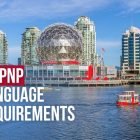The construction industry is one of the primary driving forces behind the province’s economic development, generating substantial revenue and employment for both immigrants and citizens of the province. With the gradual development of various industries, construction projects, both residential and commercial, have contributed heavily to economic growth and stability.
Moreover, the province’s construction sector is directly related to the housing market, and many ancillary industries have emerged which generate employment for a diverse workforce. The demand for residential properties is always high in the province, especially in urban centres like Vancouver and Victoria.
Moreover, the industry has ample opportunities as it increasingly embraces new technology and sustainable efforts. The new construction projects align with the province’s goals for sustainable development; thus, energy-efficient designs, environment-friendly materials and other sustainable efforts are encouraged and researched.
Who is eligible for BC PNP Construction Category?
The eligibility criteria for the BC PNP Construction Category may vary depending on the occupation or the pathway within the category. Here are some general eligibility criteria:
- Work Experience: If you plan to apply for the BC PNP construction category, you must demonstrate relevant work experience in your domain. The duration of your experience may depend on the stream within the construction category.
- Job Offer: You must have a full-time, indeterminate job offer.
- Trade Certification: You must have a valid trade certificate issued or registered with SkilledTradesBC. Moreover, your trade certificate must be relevant to the job you have been offered.
- Education: The educational requirements may vary, but you must demonstrate a relevant certificate, diploma or degree in a construction-related field.
- Intent to stay: To show a genuine intent to stay permanently in the province, you must show relevant ties to the province, such as a job offer, a detailed settlement plan, close relative stays in the province, etc.
- Settlement Funds: You must show adequate settlement funds in the form of cash, bank deposits and other liquid assets.









